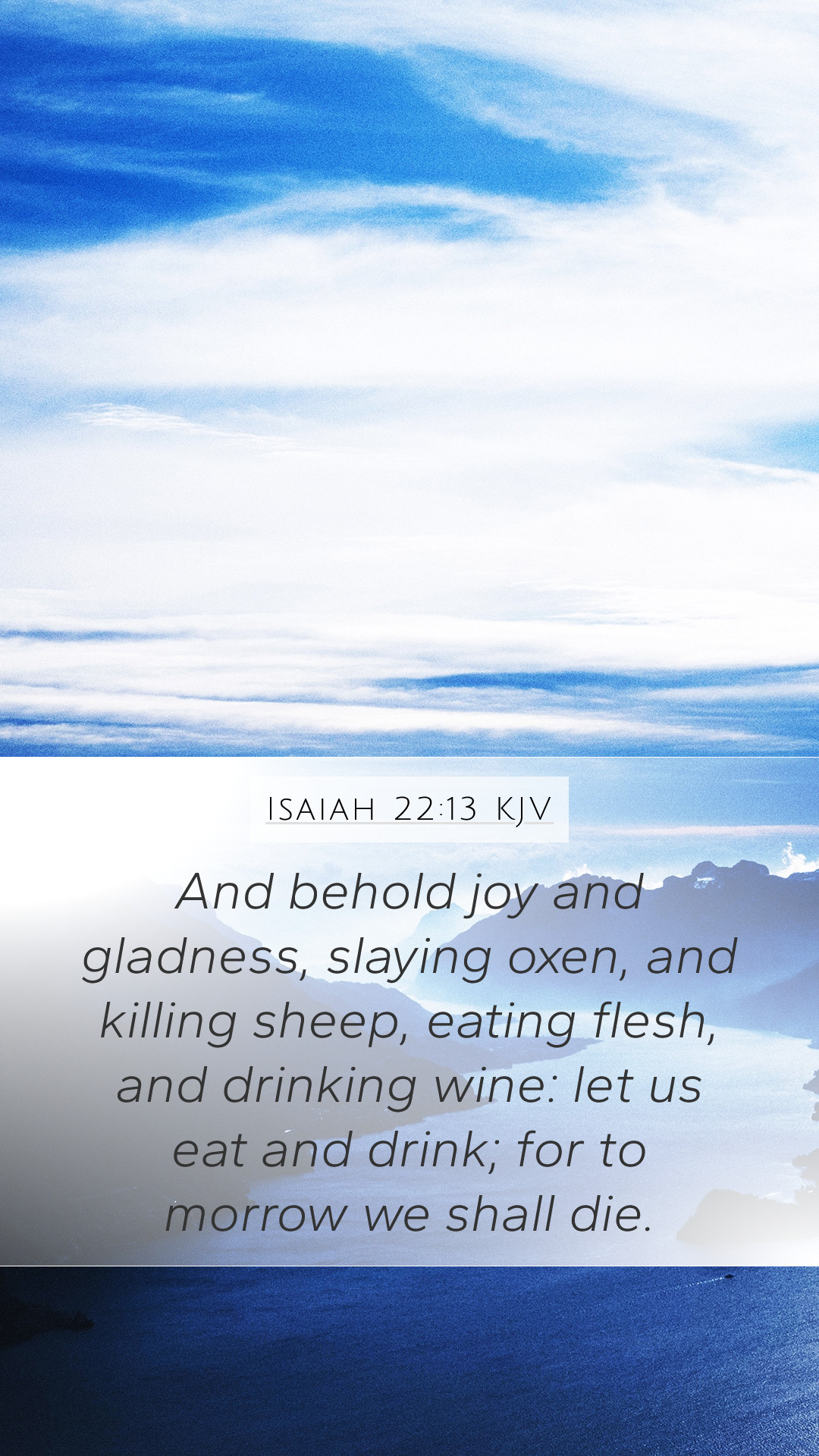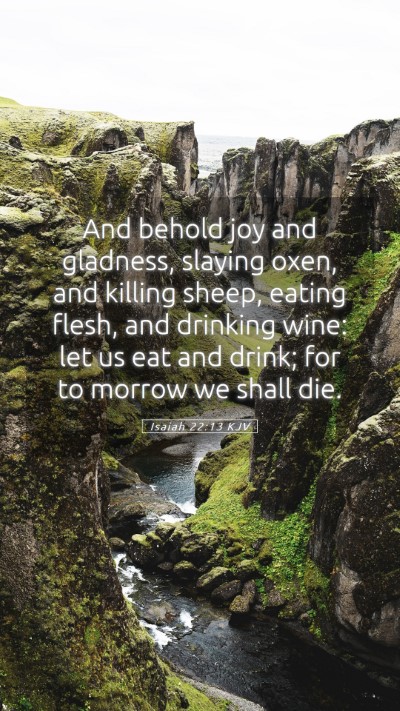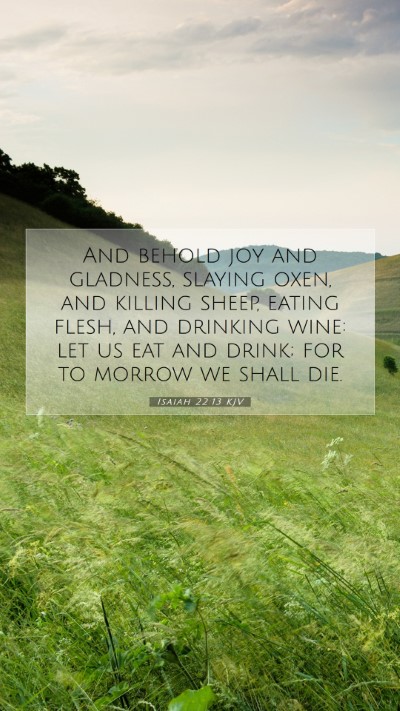Understanding Isaiah 22:13
Isaiah 22:13: "But behold, joy and gladness, slaying oxen, and killing sheep, eating flesh, and drinking wine; let us eat and drink; for tomorrow we shall die."
Bible Verse Commentary
Isaiah 22:13 serves as a stark representation of the attitude of the people of Jerusalem towards the coming judgment. They indulge in revelry and excess, entirely unaware of the impending doom and destruction that Isaiah prophesies. This verse captures a moment of brazen disregard for God's warnings.
Insights from Public Domain Commentaries
-
Matthew Henry:
Henry emphasizes the foolishness of the people who, despite knowing of God's impending judgment, choose to feast and celebrate rather than repent. He suggests that their actions reflect a broader human tendency to ignore divine warnings and indulge in momentary pleasures.
-
Albert Barnes:
Barnes notes that this verse illustrates a mindset of despair masking itself as joy. The people feign happiness, thinking their eventual demise renders present concerns trivial. This reflects a profound misunderstanding of God's will and the seriousness of their spiritual condition.
-
Adam Clarke:
Clarke brings attention to the moral implications of the verse, stating that such attitudes lead to a society devoid of responsibility and foresight. He highlights the juxtaposition of earthly pleasures against the eternal consequences of sin.
Scripture Analysis: The Theological Implications
This passage not only addresses the immediate historical context of Jerusalem's impending punishment but also provides timeless insights into human nature. The inclination to ignore divine warning for the sake of temporary delight speaks to a broader theological theme of sin and judgment throughout Scripture.
Biblical Exegesis: The Context of Isaiah
Isaiah was called to warn Judah of impending judgment due to their sins. In this verse, the people are depicted as engaging in hedonistic activities, showcasing a significant disconnect between their spiritual state and their physical actions.
Historical Context
The historical backdrop is crucial in understanding Isaiah's message. The people were in a state of political instability, with external threats looming. Rather than seeking God, they turned to self-indulgence, which was a common response to fear and uncertainty.
Application of Isaiah 22:13 to Daily Life
An essential aspect of biblical interpretation is applying scripture to our lives today. Isaiah 22:13 warns against the dangers of complacency and the false security that comes from indulging in pleasure without acknowledging the consequences of one's actions.
Considerations for Modern Believers
- Daily Reflection: Are there areas in your life where you are ignoring warnings about sinful behavior in favor of short-term pleasure?
- Community Accountability: Engaging with Bible study groups can provide support and encouragement to live righteously.
- Long-Term Perspective: Focus on the eternal over the immediate; consider how your actions align with your faith and witness.
Cross References
- Jeremiah 22:22: Reflects on the fate of the leaders of Jerusalem.
- Ezekiel 18:31: Speaks of turning away from sin and choosing life.
- 1 Corinthians 15:32: "If the dead are not raised, let us eat and drink, for tomorrow we die."
Conclusion
Isaiah 22:13 is not merely a historical account but serves as a profound commentary on human nature and our tendency towards sinful indulgence. Through the insights of esteemed scholars, we glean a deeper understanding of the need for repentance and the consequences of turning away from God.
This verse encourages reflection on our priorities and a reminder that true joy and security are found in a relationship with God, not in fleeting pleasures.


